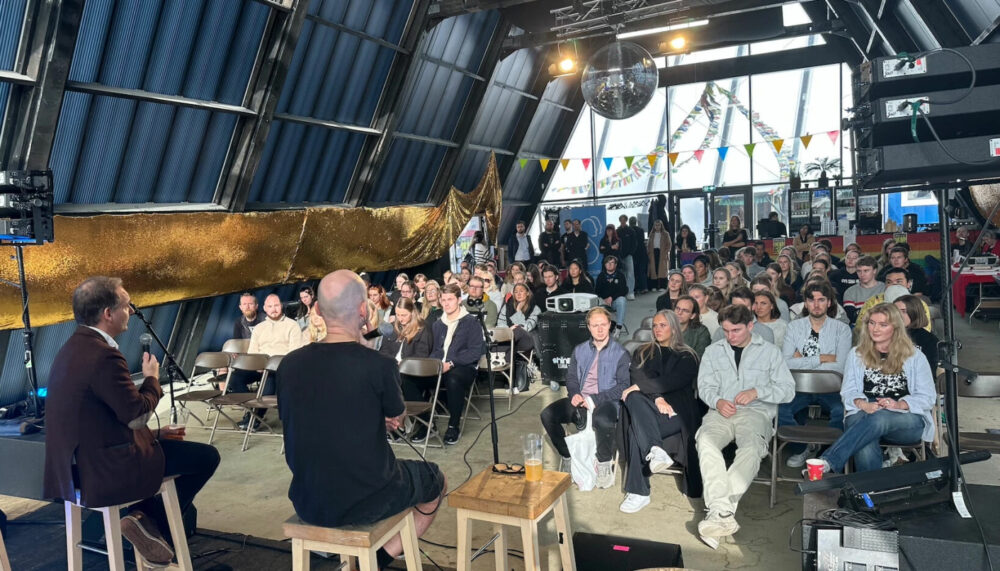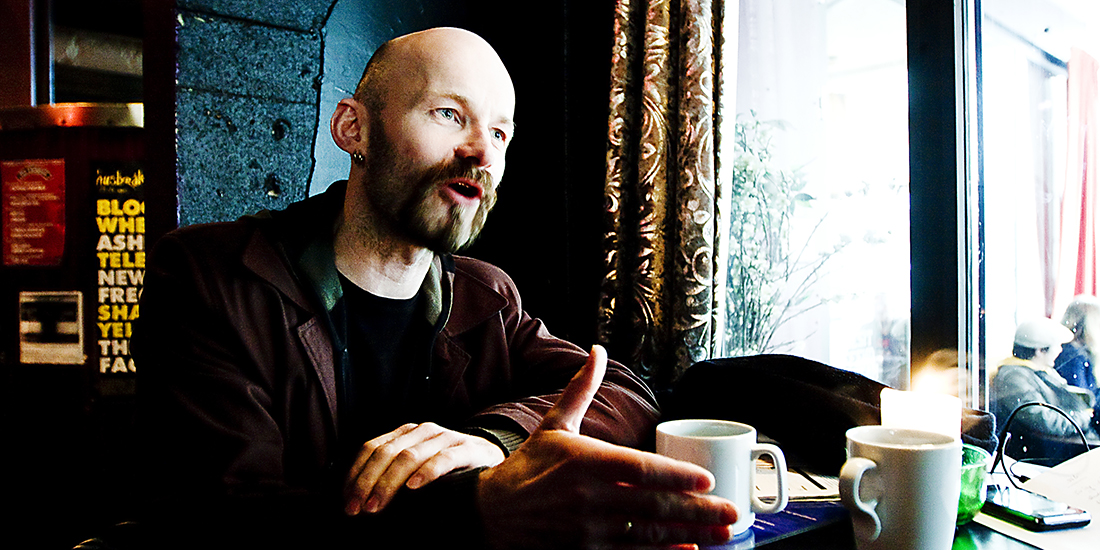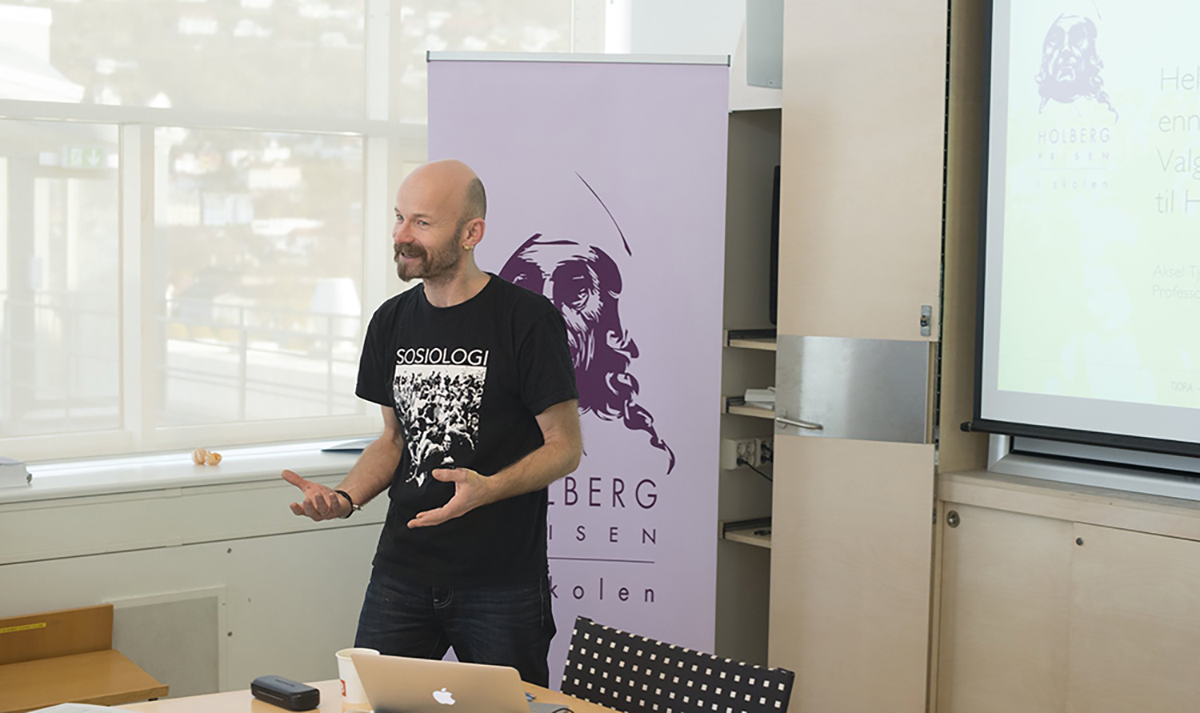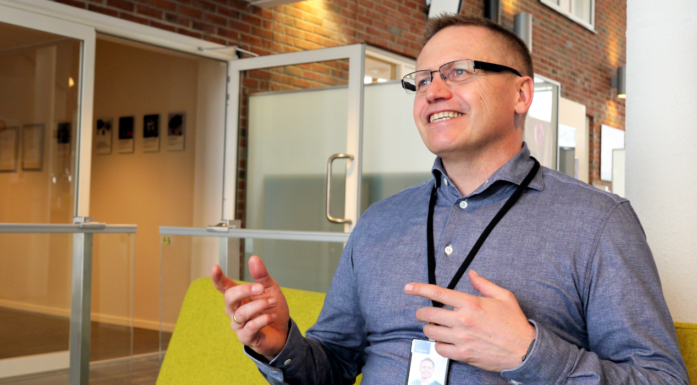Podcasts and compulsory attendance improved student learning
Lectures continue to dominate university teaching, but especially when it comes to big introductory courses, more group work and alternative assignments, such as making podcasts, can have a positive effect.
Consider a group of new sociology students who are about to dive into a completely new subject. Half of them are fresh out of upper secondary school.
They need to settle into student life and get to know other students. They are about to embark on studies in a new field and must learn new ways of acquiring knowledge, regardless of their discipline.
They also need to come to grips with concepts such as legitimation, linguistic objectification, internalization and externalization. What on Earth do these terms mean and how are the students going to become familiar with them?
Textbooks and lecturers explain these new ideas, and the students will work on them in study groups. But the question still remains: how can students become familiar with new academic concepts and terms and understand how to use them correctly?
NTNU sociology professor Aksel Tjora has both tested and studied new ways of teaching and learning.
“In lectures with 200 students or more, not many of them dare to ask questions, provide input or take part in discussions. We have now tested a number of different teaching methods in order to motivate the students,” Tjora says.
- You might also like: Have we seen the last of the traditional classroom?
Building on American research on podcasts in teaching
Recent American research shows an increasing use of film, art and music in teaching sociology. Podcasts are also used in teaching sociology, but there is still limited knowledge of how educators use this tool.
In 2020, one researcher conducted a search in the American journal Teaching Sociology and found exactly zero articles or commentaries published since 2010 on the topic of podcasts.
Since then, other researchers have investigated the potential of using podcasts to teach sociology. Among other things, they found that podcasts seem to increase student engagement.
“We have explored this further, including by seeing what function podcasts can have in interaction-based learning,” Tjora said.
- You might also like: How useful or necessary is homework?
Lectures are still the dominant form of teaching
Over the last 30–40 years, universities have paid more and more attention to how students learn best.
“We can see this as part of a specific development of the universities towards education of the masses and the production of study credits, and as a kind of industrial and mercantile approach in much of the sector,” Tjora said.
University learning is largely associated with reading, listening, speaking and writing. Speaking and writing require the most active involvement on the part of students, and tend to fare rather poorly in relation to measurements of what students spend their time doing.
The preference for passive strategies contrasts with learning as an active process.
“There are many indications that universities and university colleges have a way to go when it comes to facilitating student learning. Lectures are still the dominant form of teaching,” says Tjora.
Active teaching methods can help integrate students into academic communities, increase motivation and involvement, and facilitate confidence in independent and critical thinking.
“There has been relatively little attention has been paid to how sociological theory should be taught, and there has been little research on the teaching of the subject,” says Tjora.
He and his sociology colleagues have taken a closer look at this by testing new ways of teaching, and evaluating these approaches in conjunction with the students.

For the last ten years, Professor Aksel Tjora has organized a sociology festival where new sociology students, master’s students and fellows meet across the board to discuss subjects. The event is held outside a traditional academic setting. “I notice that these kinds of gatherings are worth their weight in gold,” Tjora told Universitetsavisa, the online newspaper that covers NTNU, during the 2023 sociology festival. Photo: Tore Oksholen
Many more students passed the exam
They have investigated how students can be taught a sociological mindset through interaction-based learning, with emphasis on the function of podcasts.
Tjora studied this with Inga Marie Hansen Hoøen and Rebekka Ravn Lysvik, both of whom have been student assistants for the introductory course in sociology. This introductory course was used as a case study.
The introductory course was restructured in autumn 2018, and steps were taken to facilitate the students’ active, creative and collective learning through the use of group work and compulsory attendance in small seminar groups, interactivity in lectures, and academic social gatherings.
The exam was changed to a portfolio consisting of compulsory group-based submissions such as podcasts and blogs. This required significant follow-up from Tjora and his teaching assistants, but increased successful completion (meaning passing the exam) by as much as 36 per cent compared with the previous year.
Before the restructuring took place, the course comprised traditional lectures, voluntary seminars in large groups, individual semester assignments and a 5-hour written exam. A report from 2016 highlighted low levels of interactivity in lectures.
“Dared to raise my hand for the first time”
The empirical basis of the study that Tjora and his two colleagues conducted in 2021 includes the evaluation of the introductory course in sociology (a survey), reference group meetings and a sample of podcast submissions. In all, 166 out of a total of 224 students registered for exams responded to the survey.
The analysis addressed three main topics: (1) a physical student community, (2) group collaboration and (3) podcasts as means of academically thinking aloud.
Physical student community: Despite the ongoing COVID-19 pandemic in the autumn of 2021, NTNU conducted physical lectures and compulsory seminars for introductory courses throughout most of the autumn. The goal was to get students back on campus.
The evaluation shows that the students experienced increased confidence through getting to know their fellow students at compulsory seminars. Each seminar group consisted of 10–20 students, in contrast to the lectures involving up to 220 students, which some found to be socially challenging.
In the evaluation, many students mentioned that they dared to ask questions and participate in academic discussions when they feel comfortable in the social setting. One of the participants writes:
“I have been a student for one year, but the introductory course in sociology was the first time I dared to raise my hand and answer a question out loud.”
Learning by thinking aloud together
Podcasts were tested as a tool for academically thinking aloud.
“Academically thinking aloud is the starting point for introducing podcasts as a compulsory exercise. The intention is to force students to talk about the subject and get them to relax. Everyone in the group has to participate in the conversation because it becomes very obvious if individuals do not speak or participate,” says Tjora.
Groups of 3–4 students were given the task of producing a podcast in which they discussed social institutions using sociological terms. A social institution might be a family, a job, a festival, or a leisure activity, for example.
The students had to use relevant terminology and link it to everyday situations. Some chose Halloween as the topic, others chose residence halls, dating or social media.
Putting on sociology glasses
“We found out how students use sociological terms in their day-to-day lives. They put on ‘sociology glasses’. Listening to the podcasts, it is very clear that they were experimenting with using sociology terms, a little unsophisticatedly and spontaneously, but they did respond to each other’s input and comments,” Tjora said.
The answers were more refined in written group work, he said
The students statesaidthat they “learn a lot of sociology just by having conversations with other fellow students” and that “working together in groups means that you have to practice arguing for your academic point of view.”
“In our observation of the students’ work and in their own feedback, it became clear that learning through more spontaneous thinking aloud is key,” says Tjora.
From scepticism to learning
The fact that the teaching contained a good deal of compulsory group work was not immediately met with great enthusiasm.
“In the beginning, we experienced a general scepticism towards group work. This was a little surprising because it is something they have been used to doing at upper secondary school,” says Tjora.
However, in the evaluations after the students had completed the semester, it appeared that the group work provided good learning outcomes.
The students felt that they gained “insight into how others understand specific tasks”, that there was a “low threshold for asking questions” and “someone to talk to regarding assignments and the syllabus”.
According to the students’ evaluation, experiencing that they can explain something to others using their own words gave them a sense of achievement:
“Having other people explain their perspectives and opinions creates a more nuanced picture where I feel I gain broader insight. It has also helped in explaining difficult theories to others using just a few, understandable words. I also learn from myself when I am forced to understand in order to explain things to others.”
It has been important for the educators that the students become accustomed to talking academically among themselves as a learning process, but also to free themselves from the need to only talk to lecturers when they perceive something in their studies as academically challenging.
Fewer free riders on podcasts
Group work also has problematic aspects, especially when it comes to written group assignments.
This is related to asymmetrical effort, where students find that they “learned the most and remember most of what I myself have written or said,” partly because each group tends to distribute tasks among the individual members rather than working on them together. This meant that the students felt they learned more from working on an entire assignment alone, or that group members who are given the most challenging subtasks learn the most.
Several students reported in the evaluation that they felt that they did most of the work and that they have had to carry the load because of little initiative within the group. This was said to be particularly challenging when it came to producing a piece of written work together.
However, thinking aloud together when producing podcasts and complying with academic requirements was an exercise in which everyone had to contribute. As a result, there were fewer free riders and more involvement, spontaneity – and learning.
“We found that many students developed the ability to academically think aloud, where they were able to understand their own everyday experiences and surroundings sociologically. From an empirical perspective, the podcasts in particular show this most clearly,” Tjora said.
What is sociology, really?
Sociology means the study of society. The content of sociology is essentially the study of the relationship between individuals and groups of individuals. (ndla.no)
Sociology is a social science that studies the prerequisites for, emergence of, and interaction between the various elements of society. (snl)
Sociology means the science of society and people’s social life. (USN)
By studying sociology, you learn about how humans influence each other and how individuals both shape and are shaped by the communities they are part of. You learn about changes in society and how these changes affect individuals’ choices and actions. (NTNU)
Reference:
Rebekka Ravn Lynsvik, Inga Marie Hansen Hoøen and Aksel Tjora. Innsiktsfull responsivitet: En analyse av kollektiv høyttenkning som pedagogisk metode i det sosiologiske innføringsemnet (in Norwegian with English abstract: Insightful responsiveness: An analysis of collective thinking aloud as a pedagogical method in the sociological introductory course.) Norwegian Journal of Sociology. pp 1–17. 13 November 2023 https://doi.org/10.18261/nost.7.6.3






